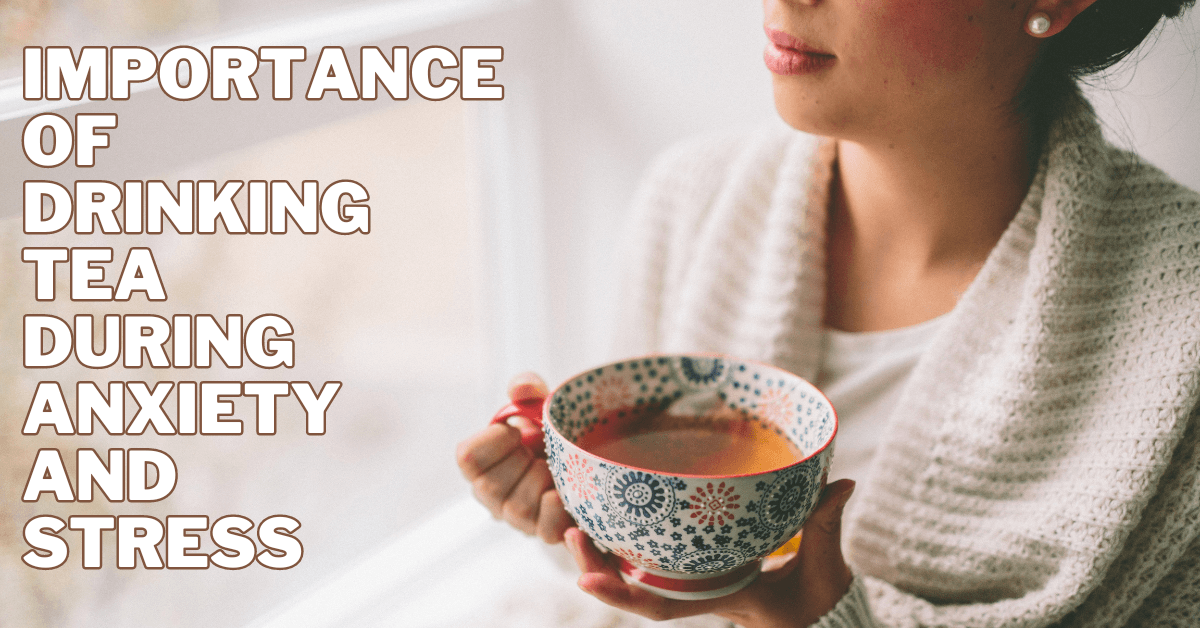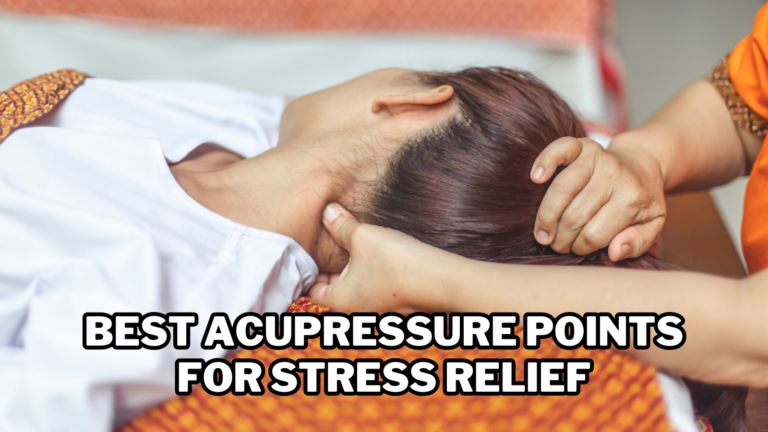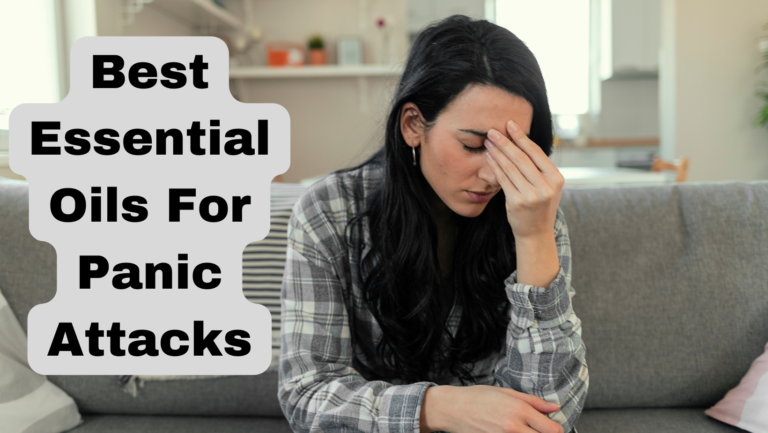Importance Of Drinking Tea During Anxiety And Stress
Importance Of Drinking Tea During Anxiety And Stress
In today's fast-paced world, stress and anxiety have become common challenges for many people. Finding time to decompress and unwind amid the daily grind is crucial for preserving mental and emotional health.
One such method that has gained popularity is drinking tea. The importance of drinking tea during anxiety and stress lies in its calming and soothing effect, offering a moment of relaxation in today's hectic lifestyle.
Several tea varieties—chamomile, lavender, and green tea—are well-known for reducing stress. These teas contain compounds that can help reduce anxiety, promote relaxation, and improve overall mood.
Incorporating tea into your daily routine may relieve stress and anxiety symptoms, allowing you to cope better with the challenges of modern life.
Role Of Tea In Relaxation
Tea promotes relaxation and reduces stress levels, particularly chamomile, lavender, and green tea.
Due to the high concentration of antioxidants in chamomile tea, such as apigenin, which binds to certain brain receptors to promote sleepiness and lessen symptoms associated with insomnia, chamomile tea is widely recognized for its relaxing qualities. Its gentle, calming qualities might ease tenseness and reduce anxiety.
The aromatic purple flower that yields lavender tea contains chemicals, including linalyl acetate and linalool, which are thought to relax the nervous system.
Lavender tea is a great option for relaxation. Studies have shown that the aroma of lavender can lower stress levels and elevate mood.
L-theanine is an amino acid also present in green tea, even though caffeine is its primary ingredient.
L-theanine has been shown to increase alpha wave generation in the brain. Alpha wave generation is linked to a relaxed yet awake state, promoting relaxation and lowering stress.
The special mix of L-theanine and caffeine found in green tea can have a relaxing effect without giving users the jittery feeling that caffeine is sometimes known to cause.
Making and drinking tea is a soothing routine that promotes awareness and relaxation. Green tea, chamomile, lavender, and other calming teas can be simple yet effective additions to your daily routine, whether for their calming warmth, delicate aroma, or health benefits.
Health Benefits Of Tea
Tea offers many health benefits, many of which stem from its high antioxidant content.
Antioxidants aid in the body's defence against unstable chemicals known as free radicals, which can harm cells and hasten the aging and disease processes.
Tea is a tasty and healthful beverage option, and including it in your daily routine can offer several health benefits:
1. Antioxidant Properties
Polyphenols and catechins are two antioxidants in high concentrations in green tea. By lowering oxidative stress and the risk of chronic diseases like cancer and heart disease, these substances assist the body in neutralizing damaging free radicals.
2. Better Heart Health
Research indicates that drinking tea daily may help lower blood pressure, enhance blood vessel function, and lower cholesterol.
3. Enhanced Immune System
Tea's antioxidants can enhance the immune system, lowering the chance of infections and diseases.
4. Better Mood and Mental Clarity
L-theanine, an amino acid in tea, helps people relax and cope with stress and anxiety. This may result in better mood and mental clarity.
5. Enhanced Energy And Alertness
Tea's caffeine can potentially enhance mental and physical energy. However, tea has less caffeine than coffee, making it a more gradual and long-lasting energy boost.
6. Better Digestive Health
Certain tea varieties, especially herbal teas like peppermint or ginger, can relieve gastrointestinal problems like bloating, nausea, and indigestion.
7. Weight Management
Research on the effects of green tea on metabolism and fat burning has led to evidence that it can help reduce weight. Additionally, it can lessen calorie intake and appetite.
Habitually consuming tea has several health advantages, such as heart health enhancement, decreased chance of developing chronic illnesses, improved mood and cognitive function, and elevated antioxidant activity.
Including tea in your daily routine is a quick and pleasurable approach to promoting your general health and well-being.
Types Of Tea For Anxiety And Stress
Several types of tea are renowned for their calming properties and ability to reduce stress and anxiety.
From chamomile to green tea, these teas contain compounds that can help relax the mind and body, promote better sleep, and improve overall well-being.
The importance of drinking tea during anxiety and stress lies in its natural ability to relax the mind and body, offering a holistic approach to managing these common challenges:
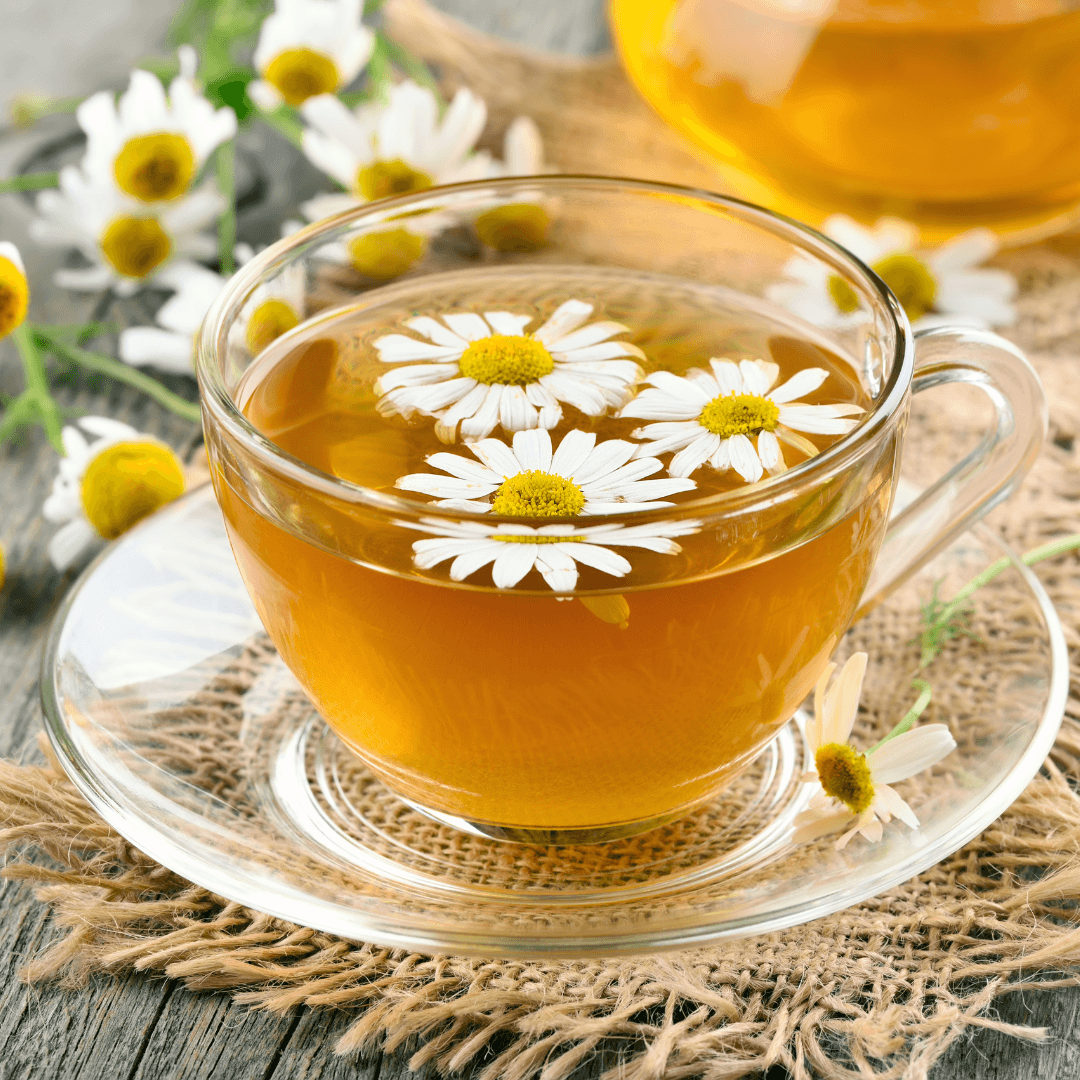
1. Chamomile Tea
Chamomile tea is a well-liked herbal treatment for its relaxing properties. Its antioxidant, apigenin, attaches to brain receptors to help calm down and relax.
Because of its mild sedative qualities, chamomile tea is frequently used as a natural treatment for insomnia and other sleep disorders.
One or two tablespoons of dried chamomile flowers should be steeped in hot water for five to ten minutes to make chamomile tea.
You can strain the flowers before drinking or leave them in the tea for added flavour. Chamomile tea can be enjoyed alone or sweetened with honey or lemon.
It is caffeine-free, making it a soothing beverage to enjoy anytime, especially before bedtime, to promote relaxation and restful sleep.
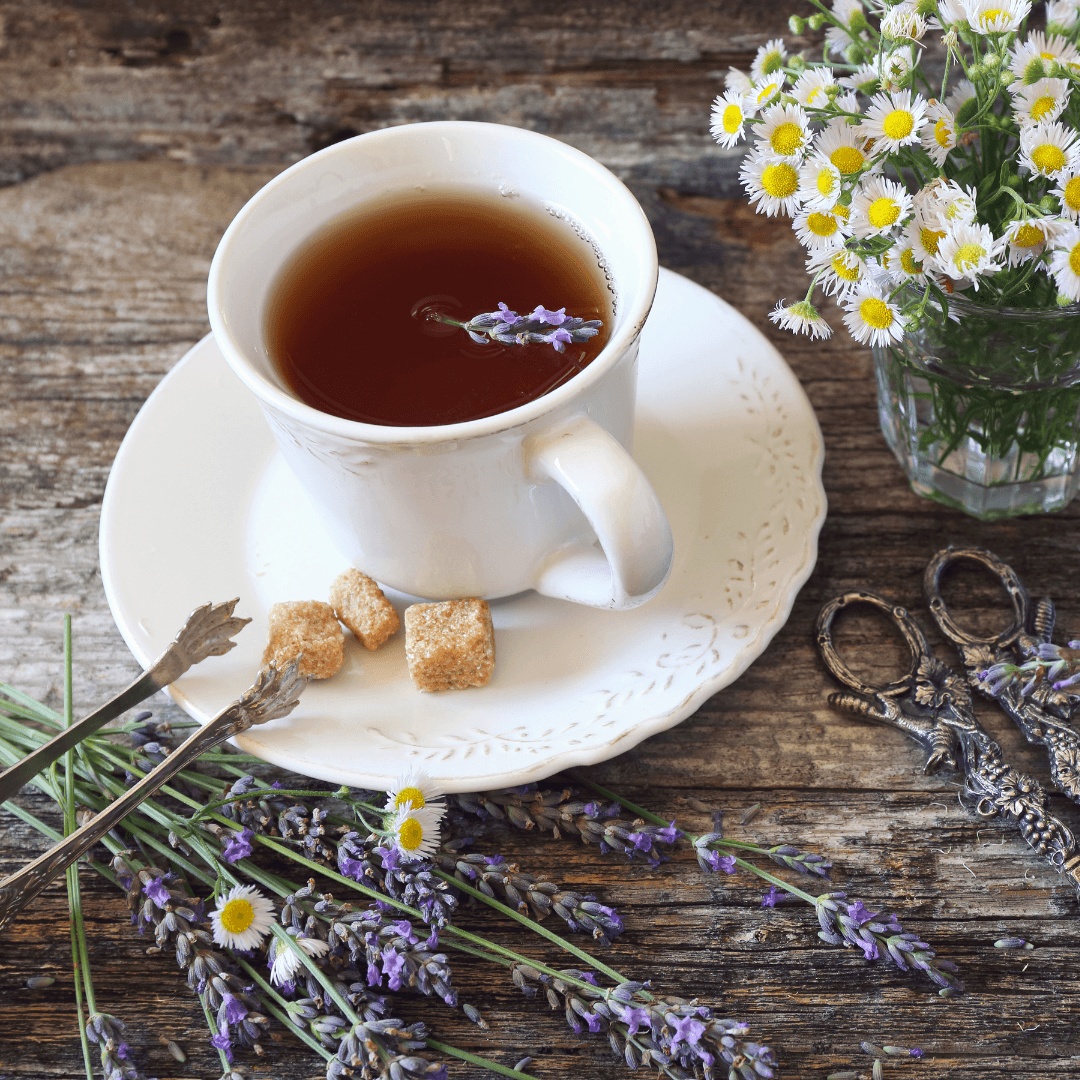
2. Lavender Tea
Dried lavender blossoms are used to make lavender tea, an aromatic herbal tea known for its relaxing and calming qualities. This makes it a well-liked option for lowering anxiety and encouraging rest.
Linalool and linalyl acetate, two substances found in lavender tea, have been demonstrated to relax the nervous system.
To make lavender tea, one or two tablespoons of dried lavender flowers should be steeped in hot water for five to ten minutes.
You can strain the flowers before drinking or leave them in the tea for added flavour. Lavender tea has a pleasant floral aroma and a slightly sweet taste, making it a delightful beverage to enjoy before bedtime or anytime you need to unwind. It is caffeine-free and can be enjoyed alone or sweetened with honey or lemon.
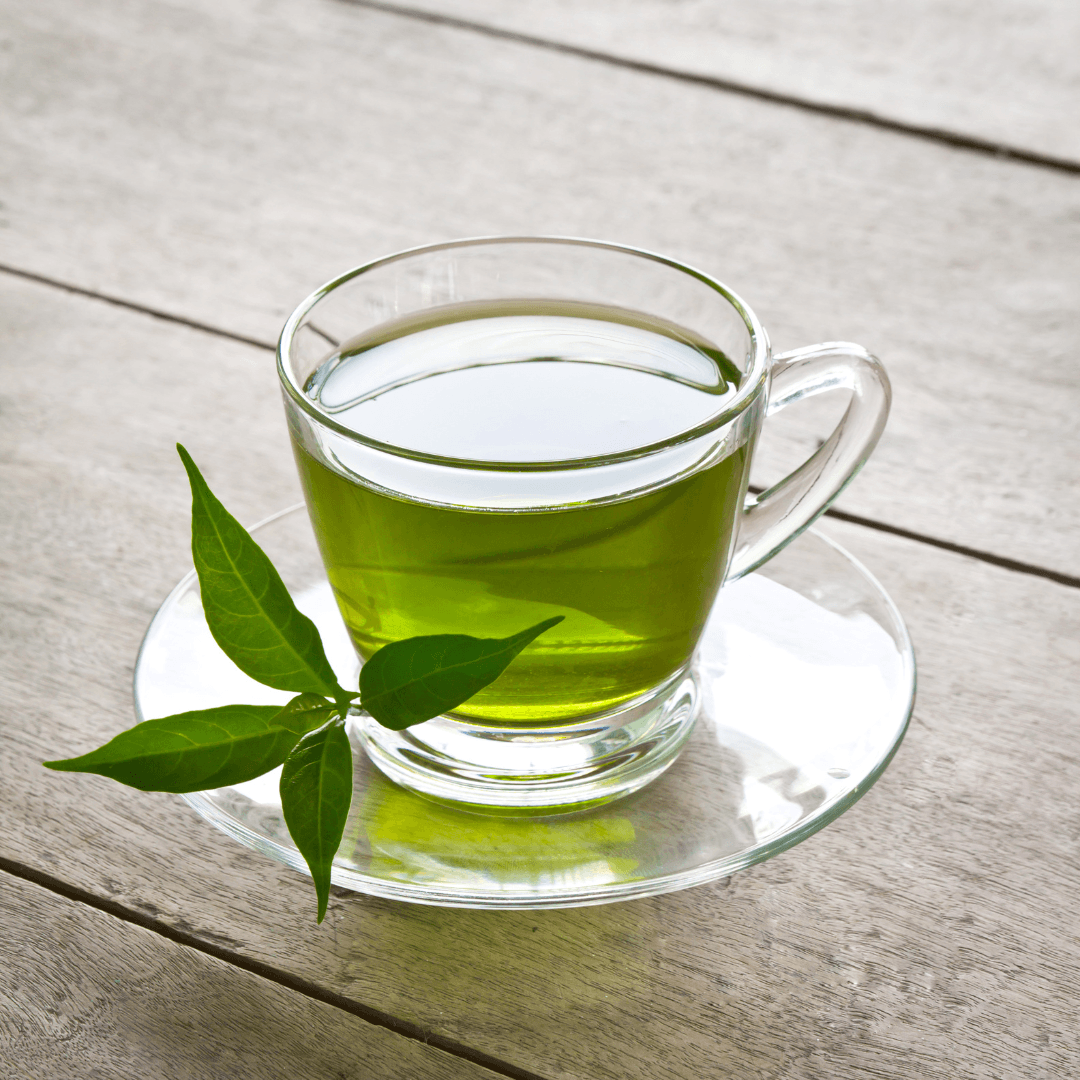
3. Green Tea
Green tea's L-theanine content helps promote relaxation and lower stress levels while providing a natural means of enhancing mood and well-being, emphasizing the significance of drinking tea during worry and tension.
Serotonin and dopamine are neurotransmitters that assist in controlling mood and foster a sense of well-being—L-theanine acts by raising these neurotransmitter levels in the brain. Moreover, caffeine, which is included in green tea, might enhance focus and alertness.
In contrast to coffee, green tea has less caffeine, which gives it a more gradual and steady energy boost without giving users the jittery feeling that caffeine is sometimes known for.
Green tea is made by steeping a teaspoon or two of green tea leaves in boiling water for two to three minutes.
To make green tea, one or two teaspoons of green tea leaves should be steeped in boiling water for two to three minutes.
Green tea can be drunk all day to help reduce tension and encourage relaxation. It can be enjoyed on its own or sweetened with honey or lemon.
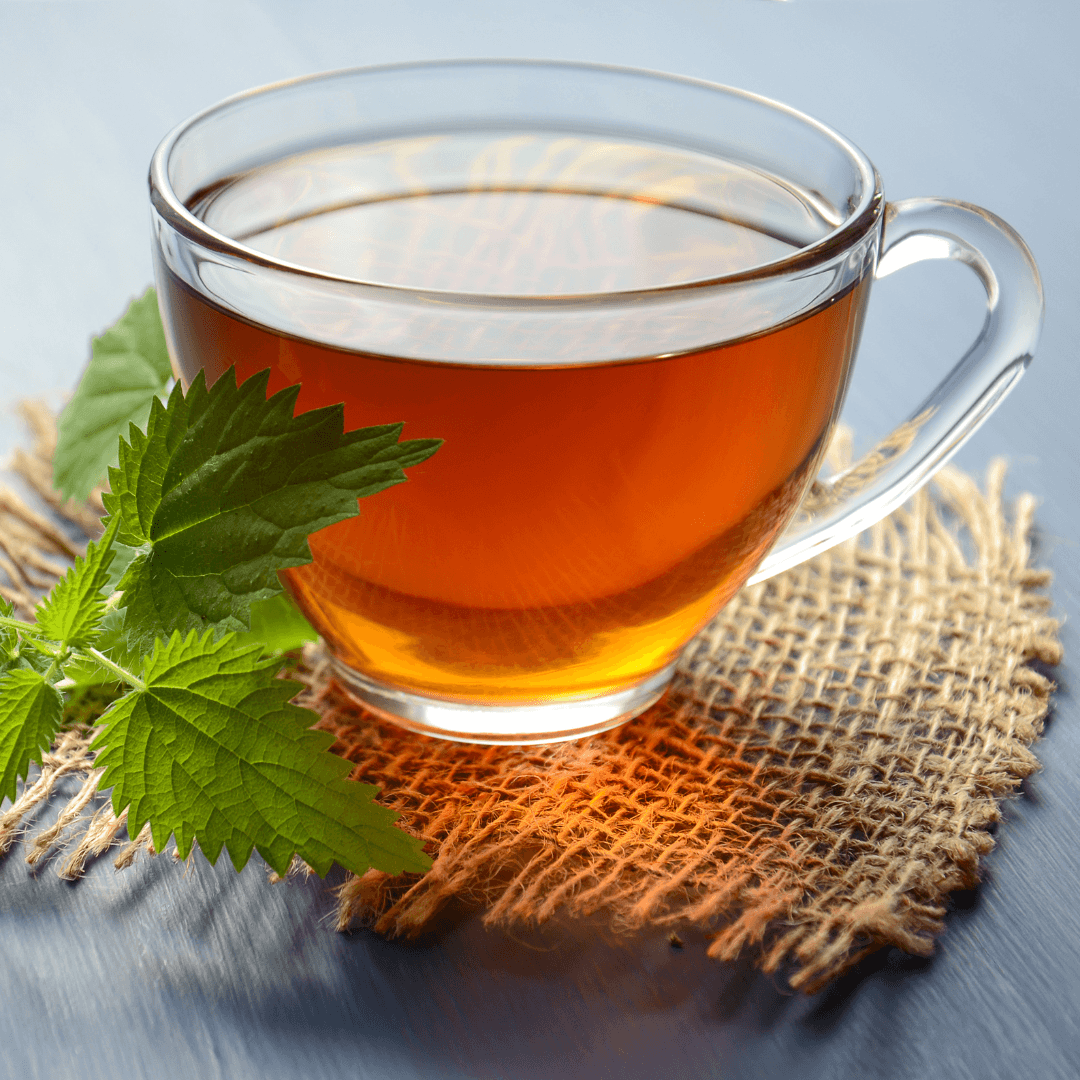
4. Peppermint Tea
Peppermint tea is a tasty herbal drink with reviving and calming qualities. It contains menthol, which can help relax muscles and relieve stress and has a cooling impact on the body.
Because of its relaxing benefits on the body and mind, peppermint tea is frequently used to reduce the symptoms of stress and anxiety.
In addition, the scent of peppermint tea is energizing and can enhance mood and cognitive function.
One or two tablespoons of dried peppermint leaves should be steeped in hot water for five to ten minutes to make peppermint tea.
Leave the leaves in the tea for extra flavour, or drain them before drinking. Caffeine-free peppermint tea is a calming and revitalizing drink perfect for any time of day.
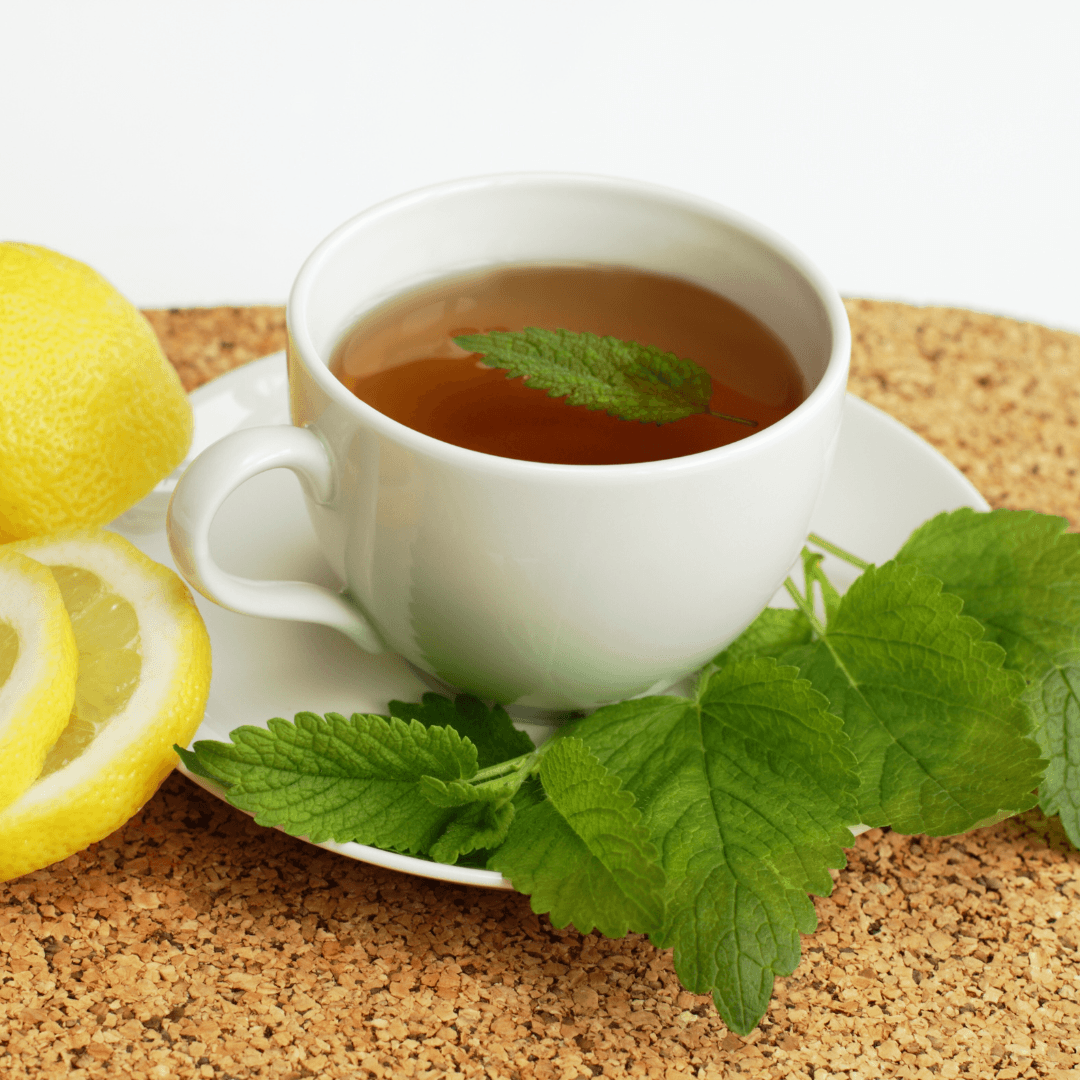
5. Lemon Balm Tea
Scientific research has highlighted the significance of tea in managing anxiety and stress, particularly due to L-theanine's role in enhancing relaxation and reducing stress levels.
L-theanine, present in green tea, has been demonstrated to boost serotonin and dopamine production in the brain, crucial neurotransmitters for mood regulation and well-being.
Studies, such as those published in the Journal of Physiological Anthropology and the Journal of Functional Foods, have illustrated the benefits of L-theanine in reducing stress responses and improving cognitive function.
Furthermore, tea's antioxidant compounds, including polyphenols and catechins, contribute to its calming effects by reducing oxidative stress and inflammation associated with anxiety and stress.
While further research is necessary to comprehend the mechanisms involved fully, the existing scientific evidence strongly supports incorporating tea into one's daily routine as a natural and effective way to enhance relaxation and well-being. It offers a simple and accessible strategy to manage anxiety and stress.
Tips For Incorporating Tea Into Your Routine
Including tea in your daily routine is an easy yet powerful strategy to reduce stress and anxiety. Here are some practical tips to help you make tea drinking a regular part of your day:
1. Mindful Tea Preparation
Take the time to prepare your tea mindfully, focusing on the process rather than rushing through it. Pay attention to the sound of the water boiling, the aroma of the tea as it steeps, and the cup's warmth in your hands.
2. Create A Calming Environment
Establish a tranquil space to sip your tea to create a relaxing atmosphere. For a better experience, turn down the lights, turn on some relaxing music, or light a candle.
3. Journaling With Tea
Pair your tea drinking with journaling to reflect on your thoughts and feelings. Write down anything causing you stress or anxiety, positive affirmations or things you're grateful for.
4. Tea For Relaxation Before Bed
Enjoying a cup of relaxing tea, such as chamomile or lavender, can help you unwind and prepare for a restful night's sleep.
5. Tea As A Social Activity
Ask friends or family to join you for tea to relax and connect. In addition to offering consolation and support, this can lessen loneliness.
6. Herbal Tea Blends
Experiment with herbal tea blends for relaxation and stress relief. These blends often contain calming herbs that work synergistically to promote relaxation.
7. Tea As A Replacement For Less Healthy Beverages
Replace sugary or caffeinated drinks with tea as a healthier alternative. This can help reduce overall stress on your body and promote better hydration.
Incorporating these tips into your daily routine can help make tea drinking a more meaningful and effective way to manage anxiety and stress.
Scientific Evidence
Scientific research has increasingly supported the use of tea as a natural remedy for reducing anxiety and stress.
Several studies have focused on the specific compounds found in tea that contribute to these calming effects.
Scientific research underscores the importance of drinking tea during anxiety and stress. It highlights L-theanine's role in promoting relaxation and reducing stress and anxiety, offering a natural way to enhance mood and well-being.
L-theanine has been shown to promote relaxation and reduce stress and anxiety by increasing the production of serotonin and dopamine in the brain.
These neurotransmitters play a crucial role in regulating mood and promoting feelings of well-being.
A study published in the Journal of Physiological Anthropology found that participants who consumed green tea rich in L-theanine experienced reduced psychological stress responses during a challenging mental task compared to those who consumed a placebo.
Another study published in the Journal of Functional Foods found that L-theanine in tea can improve attention and reaction time, further supporting its role in reducing stress and anxiety.
In addition to L-theanine, other tea compounds, such as polyphenols and catechins, have also been studied for their calming effects.
These antioxidants have been shown to reduce oxidative stress and inflammation in the body, which are associated with anxiety and stress.
Overall, the scientific evidence supporting the use of tea for reducing anxiety and stress is promising.
Including tea in your daily routine may be an easy and efficient strategy to support relaxation and general well-being, even though more research is required to understand the mechanics behind these effects completely.
Combining Tea With Other Relaxation Techniques
Tea can complement other relaxation techniques, enhancing their effectiveness and creating a more holistic approach to stress relief.
When combined with practices like meditation, yoga, or aromatherapy, tea can help amplify the calming effects of these activities.
One way to combine tea with relaxation techniques is to use it as part of a pre-or post-practice ritual.
For example, before starting a meditation session, you can prepare a cup of tea to help create a calm and focused mindset.
Brewing and sipping tea can help center your thoughts and prepare you for a more mindful meditation experience.
Similarly, tea can be a soothing beverage after a yoga session. As you wind down from your practice, a cup of tea can help you relax further and extend the sense of tranquillity you've cultivated during your practice.
The warmth of the tea can also be comforting to the body after a session of stretching and movement.
Tea can also enhance aromatherapy. Pairing a cup of lavender tea with lavender essential oil diffused in the room can create a more immersive and relaxing environment.
The tea's aroma and the essential oil can work together to promote a sense of calm and relaxation.
Combining tea with other relaxation techniques can help create a more holistic approach to stress relief and mental well-being.
Integrating tea into your mindfulness practices can enhance their benefits and create a more balanced and harmonious lifestyle.
Tea And Mental Health Awareness
Tea can significantly affect mental health awareness by promoting self-care practices that support emotional well-being.
The importance of drinking tea during anxiety and stress is evident in its role in fostering self-care practices that support emotional well-being.
It offers a simple yet effective way to manage the challenges of stress and anxiety in today's fast-paced world.
One key benefit of tea is its ability to promote relaxation and reduce stress levels. Brewing and savouring a cup of tea can create a calming ritual that allows individuals to pause, breathe, and focus on the present moment.
This mindful practice can help alleviate feelings of anxiety and promote a sense of peace and tranquillity.
Moreover, certain types of tea, such as chamomile, lavender, and green tea, contain compounds shown to have mood-boosting and stress-reducing effects.
Those with mental health conditions, including sadness and anxiety, may find these teas especially helpful.
By raising awareness about tea's mental health benefits, we can encourage individuals to prioritize self-care practices that support their emotional well-being.
Taking care of our thoughts is essential for complete wellness since mental health is equally important as physical health.
Drinking tea is a simple practice that we can incorporate into our everyday lives to support harmony, balance, and mental health.
Conclusion
Incorporating tea into your daily routine can be a simple yet effective way to manage anxiety and stress.
Tea drinking can also be a form of self-care, providing a moment of calm in an otherwise hectic day.
The importance of drinking tea during anxiety and stress is evident in its ability to provide a moment of calm and self-care. It offers a simple yet effective way to manage these challenges and improve overall well-being.
While tea can be a useful tool for managing stress and anxiety, it is crucial to keep in mind that it is not a replacement for expert medical therapy.
It's critical to get help from a healthcare provider if you are suffering from severe or persistent anxiety.
But for many others, making tea a regular part of their day can be a fun and easy method to support emotional health and relaxation.
I trust you enjoyed this article about the Importance Of Drinking Tea During Anxiety And Stress. Please stay tuned for more blog posts to come shortly.
JeannetteZ
>>>Please click here to read my all-inclusive article about Lessons That Will Teach You All About Stress<<<
>>>Are you interested in Natural Healing And Stress Relief through Herbs? Please click here for my #1 Recommendation<<<
Your Opinion Is Important To Me
Do you have thoughts, ideas, or questions? I would love to hear from you. Please leave me your questions, experiences, and remarks about this article on the Importance Of Drinking Tea During Anxiety And Stress in the comments section below. You can also reach me by email at Jeannette@Close-To-Nature.org.
Disclosure
This post may contain affiliate links. I earn from qualifying purchases as an Amazon Associate and other affiliate programs. Please read my full affiliate disclosure.
You might also enjoy these blog posts:
All You Need To Know About Stress And Alcohol
Best Surprising Benefits Of Laughing

